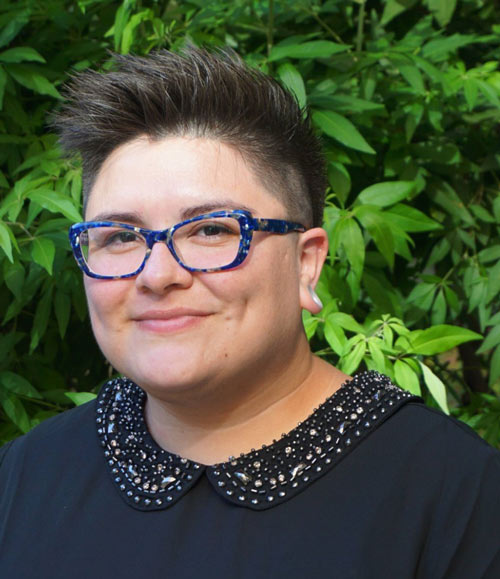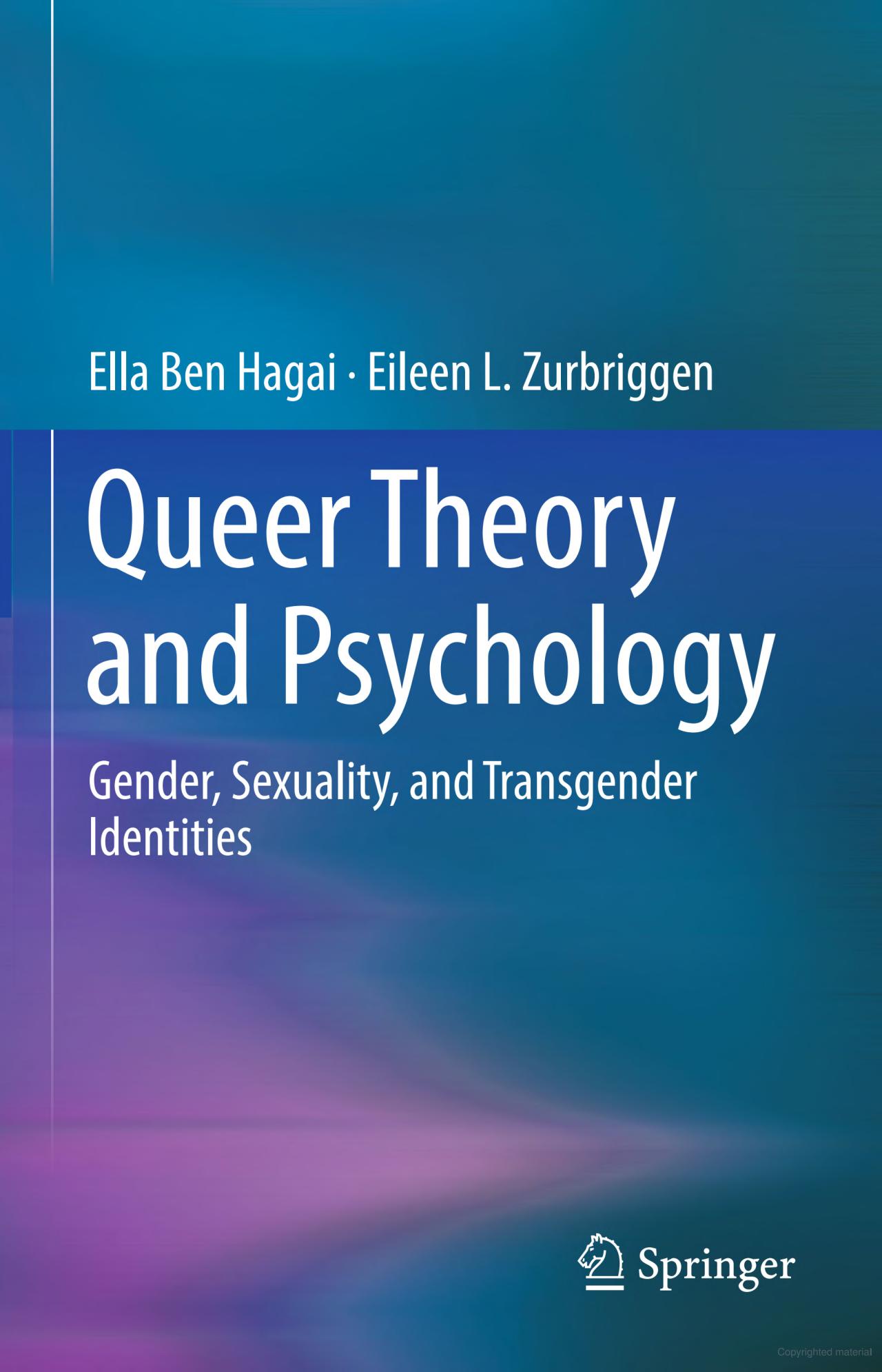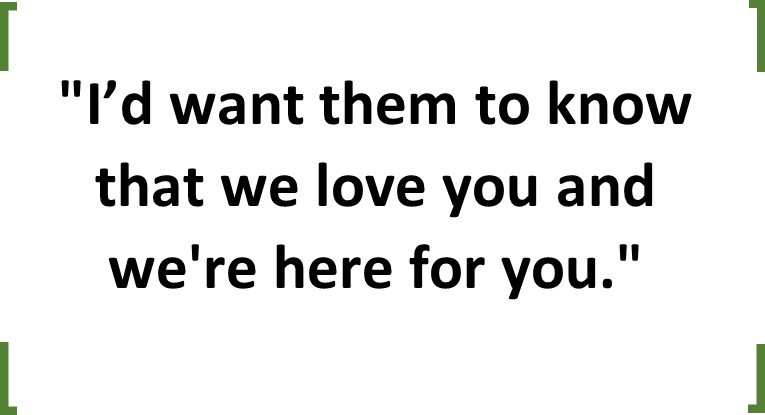PSY Academic Advisor Noël Lugo Published in Award Winning Book
December 4, 2023 - Shelly DeJong

Noël Lugo, a psychology academic advisor and coordinator of undergraduate diversity programs, co-authored a chapter in a book titled Queer Theory and Psychology: Gender, Sexuality, and Transgender Identities. The book is the recipient of the American Psychological Association Society for the Psychology of Sexual Orientation and Gender Diversity’s Distinguished Book Award as well as the Association of Women in Psychology Distinguished Publication Award. Noël's chapter was co-authored with Dr. Ella Ben Hagai and is entitled “The Transgender Spectrum.”
We recently talked with Noël about why they wanted to write this chapter and what they hope for the future in transgender care and understanding.
How did you come to write the chapter, “The Transgender Spectrum?”
As an undergraduate and graduate student, the bulk of the research I was focusing on was how to deal with hate crimes against transgender people, particularly transgender women of color. When the pandemic hit, I realized that for my own mental health, I could not continue with that type of work. I realized as a queer, trans researcher that I was tired of focusing on research that dealt with trans trauma, and for myself, I needed to focus more on trans joy and becoming and highlighting transness differently. Being involved in this book was an opportunity to frame transness in another way. I think it's our responsibility to lead the charge in celebrating trans joy and what that looks like.
I'm very proud of what's been produced. I think this conversation that we're trying to enter into in the book is vital. This book is about trying to bring different disciplines into conversation with each other to hopefully strengthen everybody's work and ultimately that it leads to transgender liberation.
Can you tell us about what your chapter is about?
 In this chapter, we summarize some of the foundational ideas of transgender studies in the 90s and we bring them into conversation with some of the recent research in psychology that we think is headed in the right direction.
In this chapter, we summarize some of the foundational ideas of transgender studies in the 90s and we bring them into conversation with some of the recent research in psychology that we think is headed in the right direction.
In the 60s, a pivotal book, The Transsexual Phenomenon, was written by an endocrinologist named Harry Benjamin where he outlined what he called the true transsexual. The medical field became gatekeepers because they were the ones who controlled who could get access to gender-affirming medical treatment. The trans community read Benjamin's diagnostic criteria of the true transsexual, and they echoed these back to their doctors to ensure they would qualify for treatment. Over time, this born in the wrong body narrative has risen to the surface. While this narrative does reflect the felt experience of some trans people, it certainly doesn't reflect everyone's experiences. This model still informs a lot of how the medical field, psychology, and psychiatry are still engaging with trans people.
We then look at the research from the trans community that rejects this. Trans theorists say that people need to be allowed to be in control of their own lives and to say who they are. Instead of putting people into boxes of binary gender, as has been the traditions within medicine and psychiatry, they want to celebrate transness as this overall umbrella term. They argue for an understanding of transness that doesn’t fit people into granular categories.
We take these foundational texts in trans studies, and we bring them into conversation with psychological research and then highlight a couple models where we think psychology is listening to the trans and queer community, and coming up with models and understanding of gender that are more closely aligned with how trans people are saying they want to conceptualize and understand gender.
As you’re looking at the historical trajectory of transness, what are your hopes for the future?
My hope is that this research informs what the future of gender care looks like among the medical and psych communities. I'm hoping that ultimately, trans individuals are allowed to be in control of their own destinies. A lot of genderqueer individuals in particular still feel pressure to promote or uphold the born in the wrong body binary understanding of gender to get access to the treatment they need. The future that I'm hoping for is one where everybody can be exactly as they are on the beautiful spectrum of gender and get their needs met individually.
In mainstream psychology there is still a focus on how to alleviate gender dysphoria symptoms. What I'm hoping that clinicians in the future keep in mind a little more, is instead of trying to simply alleviate discomfort, how do we promote joy and happiness? Some people are quite happy in themselves and still want to pursue medical treatment. This concept of gender euphoria, when people are feeling affirmed, when their gender expression is aligned with their experienced gender, when folks are comfortable, accepted, and able to present and express themselves authentically, needs to be further researched and centered within clinical practice.
Any advice for students who are navigating the gender spectrum?
For my master’s thesis, I asked trans people, particularly gender diverse or gender expansive individuals, to share the story of their gender over time and how that’s evolved. Most folks reported that they had changed their gender identity label at least once, which lends to the idea that trying on new gender labels or pronouns is part of the gender exploration process, that gender isn't necessarily a fixed place but that it can change over time. For college and university students, this is often the first place where they can really start to explore, at least in some safe spaces and groups.  I’d want them to know that we love you and we're here for you. There are people who want to support them, that they're going to find their communities, and to hang on. We want students to know that they're going to find their people, they're going to explore, it's okay if things change over time, and that ultimately, authenticity is worth it.
I’d want them to know that we love you and we're here for you. There are people who want to support them, that they're going to find their communities, and to hang on. We want students to know that they're going to find their people, they're going to explore, it's okay if things change over time, and that ultimately, authenticity is worth it.
Do you have anything else that you want to share?
Medicine, psychiatry, and psychology overall can be really concerned with labeling things, finding objective truth, articulating processes, and being able to label and predict behavior. But trans folks aren’t looking for fixed points. We're hoping to create space where people can just be their full selves and self-determine whatever joy looks like for them in whatever configuration that looks like. My final hope is for more trans voices from the community, more trans voices from trans politics, and more trans researchers. I think we're at a point now where we need to write ourselves into existence. I want people to be happy and to be themselves. In my belief system, there's only one life and I think folks deserve to live it in whatever way brings true joy and comfort.

